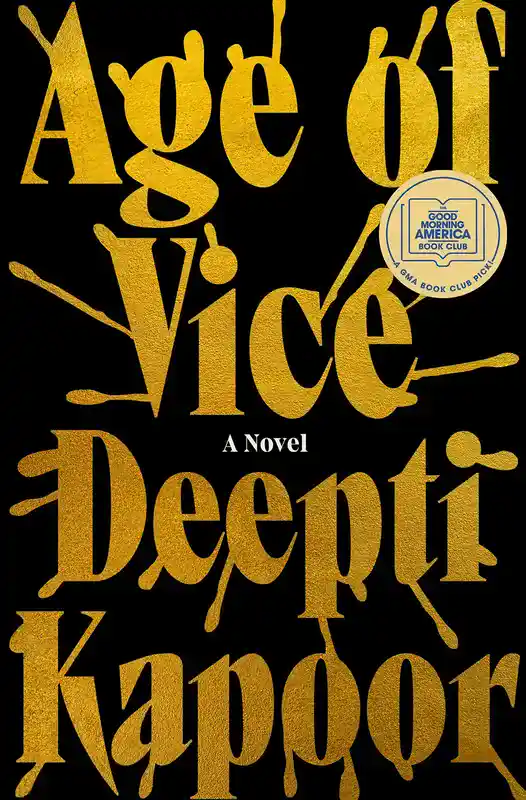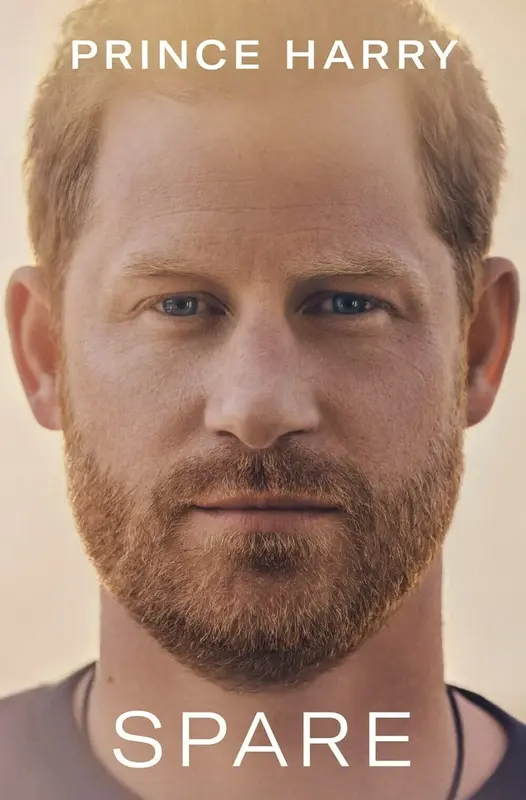This post may contain affiliate links. Read more here.
Book club questions for “The New Life” by Tom Crewe explore the complexities of identity, society, and love. This is a story of self-discovery, oppression, and the pursuit of happiness.
My book club questions contain spoilers, so make sure you’ve read the book first!
“The New Life” is a thought-provoking novel that delves into the experiences of marginalized individuals and the societal expectations that shape their lives. It is a powerful exploration of how societal norms and laws restrict personal freedom and autonomy, and how individuals navigate these constraints in their pursuit of love and happiness.
Below are the book club questions for “The New Life.” I hope you will find it useful to discuss these questions in detail with your book clubs!
The Synopsis
A brilliant and captivating debut, in the tradition of Alan Hollinghurst and Colm Tóibín, about two marriages, two forbidden love affairs, and the passionate search for social and sexual freedom in late 19th-century London.
In this powerful, visceral novel about love, sex, and the struggle for a better world, two men collaborate on a book in defense of homosexuality, then a crime—risking their old lives in the process.
In the summer of 1894, John Addington and Henry Ellis begin writing a book arguing that what they call “inversion,” or homosexuality, is a natural, harmless variation of human sexuality. Though they have never met, John and Henry both live in London with their wives, Catherine and Edith, and in each marriage there is a third party: John has a lover, a working class man named Frank, and Edith spends almost as much time with her friend Angelica as she does with Henry. John and Catherine have three grown daughters and a long, settled marriage, over the course of which Catherine has tried to accept her husband’s sexuality and her own role in life; Henry and Edith’s marriage is intended to be a revolution in itself, an intellectual partnership that dismantles the traditional understanding of what matrimony means.
Shortly before the book is to be published, Oscar Wilde is arrested. John and Henry must decide whether to go on, risking social ostracism and imprisonment, or to give up the project for their own safety and the safety of the people they love. Is this the right moment to advance their cause? Is publishing bravery or foolishness? And what price is too high to pay for a new way of living?
A richly detailed, insightful, and dramatic debut novel, The New Life is an unforgettable portrait of two men, a city, and a generation discovering the nature and limits of personal freedom as the 20th century comes into view.
In love with literature? Try audio books or writing classes
for free for 30 days.✨
Book Club Questions for The New Life
1. On page 85, the reader learns of Henry’s “peculiarity” and the shame he’s felt about it for his entire life. This “peculiarity” allows him to sympathize with “inverts” and their oppression. Discuss how narrow the definition for “normal” really is. How many people fall outside of that category? How have the confines for normal broadened or narrowed since Henry and John’s day?
2. A recurring fear of both John and Henry is that John’s “inversion” will be discovered, discrediting their book. Why is it that we don’t trust the subjects of debate to have a credible perspective? What are some examples of conversations where the people most affected by the decision are left out of the process?
3. At the beginning of chapter 11, John recalls the events leading up to his marriage to Catherine, the dread he felt, his inability to focus, his casual cruelty because he did not love her. He recalls rushing into the marriage even though he knew it was wrong. Discuss a time you were torn between instinct and reason when making a decision. How often were your instincts right?
4. On page 126, in the midst of a heated conversation about sexual freedom and contraceptives, Angelica says, “If sex is considered a pleasure, why would you not make it safe from consequences in every kind of case?” What role does moral posturing play in maintaining the status quo? How does it contribute to restricting bodily autonomy?
5. In the same conversation, and later on page 152, the meaning and limits of liberty are raised again. Angelica claims that “liberty can be abused.” How is “liberty” being defined here? Does that definition allow for individual self-determination? How is “liberty” constrained when someone other than the individual gets to decide when they are “abusing” it? How do responsibility and liberation compete with or complement each other?
6. In a letter to Henry on page 141, John defends the omission of female inverts from their book due to the lack of legal penalty. However, lesbianism was socially taboo, and women who attempted to marry one another with one presenting as a man were charged with fraud. Considering that Edith and Angelica were by no means free to be together despite it not being explicitly illegal, how does this illustrate the limits of legality as a means of liberation?
7. Consider the ripple-effects of the prohibitive laws against “inversion.” John’s wife, Catherine, is deeply wounded by the limits placed on his choices — and by his resulting actions — and is not free herself to seek other companionship. Discuss the ways in which this reflects Franny Lou Hamer’s quote “Nobody’s free until everybody’s free.”
8. Consider the line “We must live in the future we hope to make.” What does this mean to you? How do you or how would you incorporate this into your own life? What future do you hope to make?
9. On page 245, John says, “I said to Ellis today that there are blameless lives, that Wilde had dragged us all down with him. It isn’t true. I don’t think any of us are blameless — we haven’t been allowed to be.” Explore the concept of innocence as a requirement for justice or equality. Why is it that John feels that in order to be protected, he and other inverts need to be completely “blameless”? How does the concept of “innocence” play into who is granted justice?
10. Jack confronts Henry after discovering that he is continuing with the plan to publish the book, afraid of what it will mean for him. On page 256 he says, “Does it ever occur to you that the New Life might be easier for some people to live than for others?… The gap is wider if you are in defiance of the law, than if you simply choose to live apart from your wife.” Discuss other instances in the book where it is clear that the “New Life” only offers liberation for some. How could the “New Life” become accessible to all?
Bonus Book Club Questions for The New Life
These additional discussion questions explore different elements of the book, and I would highly suggest adding them to your book clubs as well.
11. How is the concept of “liberty” defined and limited in the novel, and how does this relate to the idea of self-determination and autonomy?
12. How does the novel demonstrate the interconnectedness of oppression and the impact it has on not only marginalized individuals, but also those close to them, through the character of Catherine?
13. How does the societal expectation of normal behavior affect individuals who do not fit that mold, such as the character of Henry in the novel, and how does this relate to the oppression of marginalized groups?
14. How does the novel demonstrate that the idea of “the New Life” as a solution to oppression is limited and inaccessible to certain individuals, and what steps can be taken to make this idea more inclusive?
15. How does the idea of “living in the future we hope to make” apply to the characters in the novel and how can we apply this idea to our own lives?
Additional Recommendations
Hope you enjoyed my book club question for The New Life by Tom Crewe! Here are some more of my book club recommendations.
Age of Vice by Deepti Kapoor
This is the age of vice, where money, pleasure, and power are everything,
and the family ties that bind can also kill.
New Delhi, 3 a.m. A speeding Mercedes jumps the curb and in the blink of an eye, five people are dead. It’s a rich man’s car, but when the dust settles there is no rich man at all, just a shell-shocked servant who cannot explain the strange series of events that led to this crime. Nor can he foresee the dark drama that is about to unfold.
Deftly shifting through time and perspective in contemporary India, Age of Vice is an epic, action-packed story propelled by the seductive wealth, startling corruption, and bloodthirsty violence of the Wadia family — loved by some, loathed by others, feared by all.
In the shadow of lavish estates, extravagant parties, predatory business deals and calculated political influence, three lives become dangerously intertwined: Ajay is the watchful servant, born into poverty, who rises through the family’s ranks. Sunny is the playboy heir who dreams of outshining his father, whatever the cost. And Neda is the curious journalist caught between morality and desire. Against a sweeping plot fueled by loss, pleasure, greed, yearning, violence and revenge, will these characters’ connections become a path to escape, or a trigger of further destruction?
Equal parts crime thriller and family saga, transporting readers from the dusty villages of Uttar Pradesh to the urban energy of New Delhi, Age of Vice is an intoxicating novel of gangsters and lovers, false friendships, forbidden romance, and the consequences of corruption.It is binge-worthy entertainment at its literary best.
Spare by Prince Harry The Duke of Sussex
It was one of the most searing images of the twentieth century: two young boys, two princes, walking behind their mother’s coffin as the world watched in sorrow—and horror. As Princess Diana was laid to rest, billions wondered what Prince William and Prince Harry must be thinking and feeling—and how their lives would play out from that point on.
For Harry, this is that story at last.
Before losing his mother, twelve-year-old Prince Harry was known as the carefree one, the happy-go-lucky Spare to the more serious Heir. Grief changed everything. He struggled at school, struggled with anger, with loneliness—and, because he blamed the press for his mother’s death, he struggled to accept life in the spotlight.
At twenty-one, he joined the British Army. The discipline gave him structure, and two combat tours made him a hero at home. But he soon felt more lost than ever, suffering from post-traumatic stress and prone to crippling panic attacks. Above all, he couldn’t find true love.
Then he met Meghan. The world was swept away by the couple’s cinematic romance and rejoiced in their fairy-tale wedding. But from the beginning, Harry and Meghan were preyed upon by the press, subjected to waves of abuse, racism, and lies. Watching his wife suffer, their safety and mental health at risk, Harry saw no other way to prevent the tragedy of history repeating itself but to flee his mother country. Over the centuries, leaving the Royal Family was an act few had dared. The last to try, in fact, had been his mother. . . .
For the first time, Prince Harry tells his own story, chronicling his journey with raw, unflinching honesty. A landmark publication, Spare is full of insight, revelation, self-examination, and hard-won wisdom about the eternal power of love over grief.
Thank you for reading my book club questions and happy reading! ❤️

